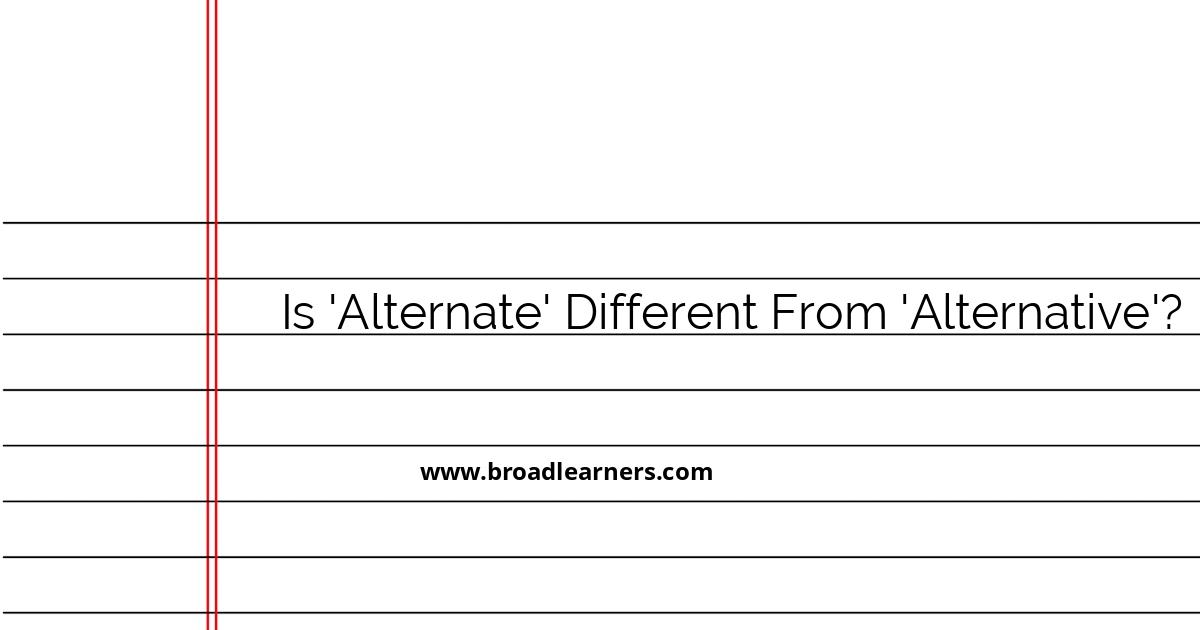The English language often presents us with words that seem similar yet bear different meanings. Two such words are ‘alternate’ and ‘alternative’. While they are connected, they are not interchangeable. Understanding the differences between these two terms is crucial for their correct usage. In this article, we will discuss the distinctions between 'alternate' and 'alternative' through detailed explanations and examples.
- 'Alternate'
The word ‘alternate’ is primarily used as an adjective, but it can also function as a verb. When used as an adjective, ‘alternate’ refers to something every other or every second instance. The idea is that one skips over an item, focusing on every other one.
As a verb, ‘alternate’ means to switch back and forth between two or more states or actions.
- 'Alternative'
The term ‘alternative’, when used as a noun, refers to a choice or an option that can be selected over others. As an adjective, it denotes something that is available as another option apart from the usual or the existing one.
Essentially, it offers a substitute for a current or traditional method or option.
To provide deeper clarity, let's explore these with examples:
- Example of ‘Alternate’:
Adjective: "We decided to meet on alternate weekends."
Explanation: Here, ‘alternate’ describes the action of meeting every other weekend, implying a pattern of meeting every second weekend.
Verb: "Please alternate the duties between the two teams."
Explanation: As a verb, ‘alternate’ signifies the act of switching or changing responsibilities between two teams back and forth.
- Example of ‘Alternative’:
Noun: "We are exploring an alternative to the current strategy."
Explanation: In this sentence, ‘alternative’ denotes a different choice or plan that might replace the existing strategy.
Adjective: "She adopted an alternative lifestyle that differs from the traditional one."
Explanation: Here, ‘alternative’ describes a lifestyle that serves as another option, breaking away from conventional ways.
Understanding these differences will allow you to use both terms accurately, which is indispensable for precise communication. In conclusion, while ‘alternate’ often involves taking turns or every other instance, ‘alternative’ refers to one of many available options that can stand as a substitute.

Did I miss anything? Respond below